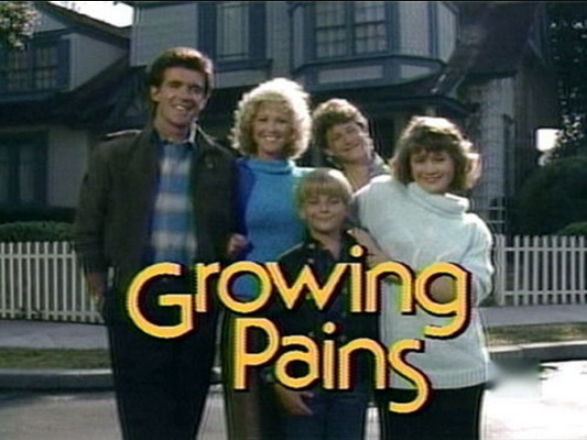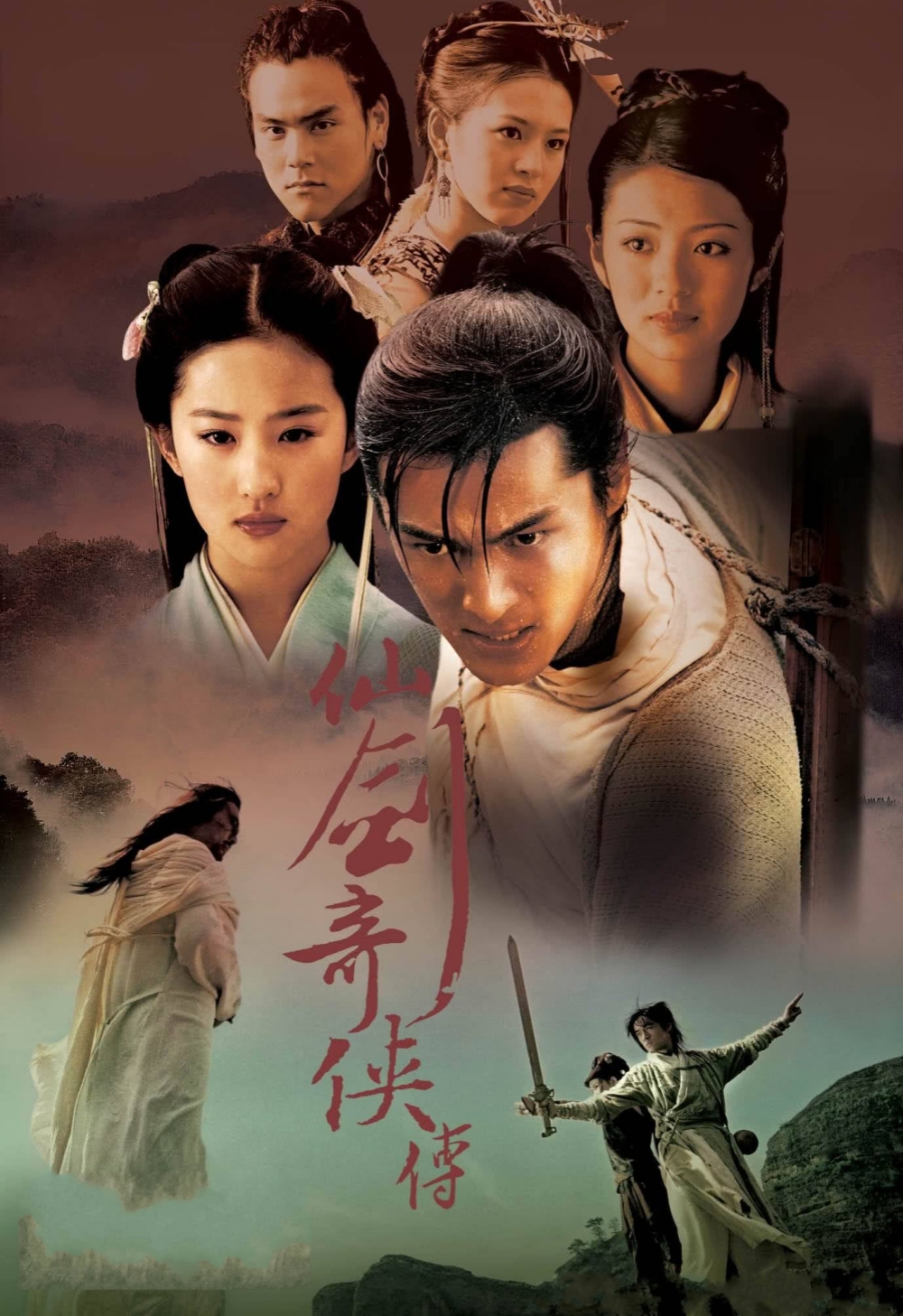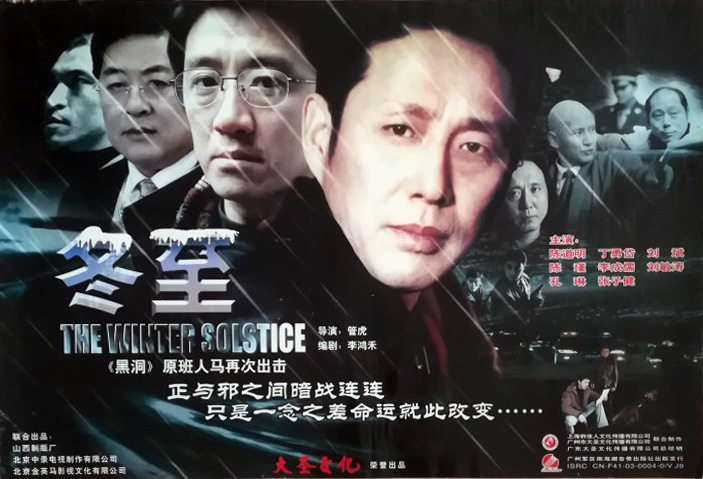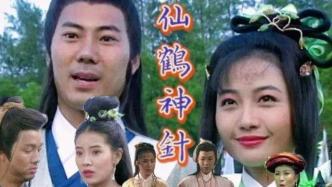
Editor's note: This is a nostalgic theater.
In the 1990s when wireless TV dramas dominated the mainland, very few ATV works could be broadcast continuously in summer or winter. From this point of view, ATV's "The Crane Needle" produced in 1992 is undoubtedly a successful TV series. However, because the plot of the TV series has been adapted too much from the original book, fans and loyal fans of the original book also feel very sorry for this work.
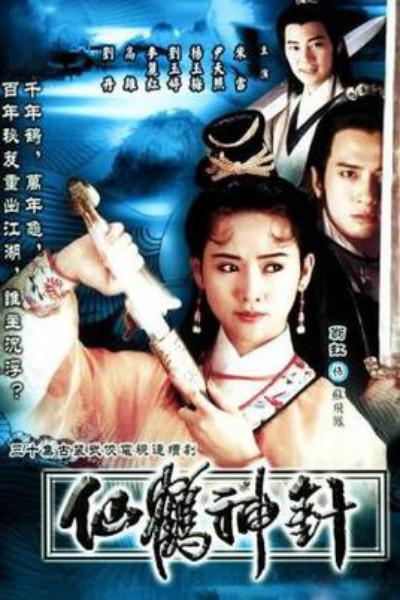
ATV "The Crane Needle" poster
"Crane Needle" is adapted from Wo Longsheng's famous martial arts novel "New Crane Needle". The real name of "The Crane Needle" is "Flying Swallow Jinglong". When Wo Longsheng was serialized in Hong Kong, he changed the title of the book and changed the names of the main characters. After the novel "The Crane Needle" became popular in Hong Kong, Wo Longsheng revised the book and finally got "New Crane Needle". In 1993, "New Crane Needle" starring Tony Leung, Anita Mui, and Guan Zhilin actually used the original name of the novel.
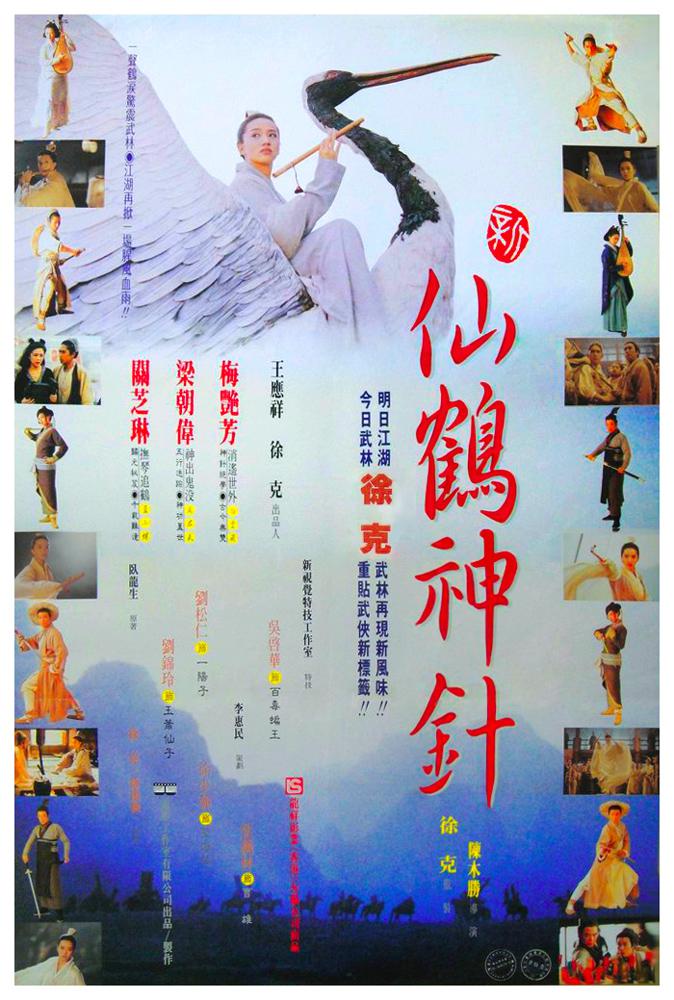
Poster of the movie "New Crane Needle"
"The Crane Needle" is Xiao Sheng's first TV drama after his return to ATV. He has directed classic martial arts films such as the 1982 version of "Dragon and Babu" and the 1983 version of "The Condor Heroes" in TVB. Presumably the audience was quite impressed by the fake set at the time of TVB, which is the case in the above-mentioned classic martial arts films. And "The Crane Needle" is a work of conscience with a lot of investment. The internal force competition will explode, and the magic sword will be phantom. The most commendable thing is that the beautiful, ethereal and fantastical scenery was shot in the Wulingyuan Scenic Spot in Zhangjiajie on the mainland, which is also very close to the "Yuanling Peach Blossom Garden" where the original story took place.
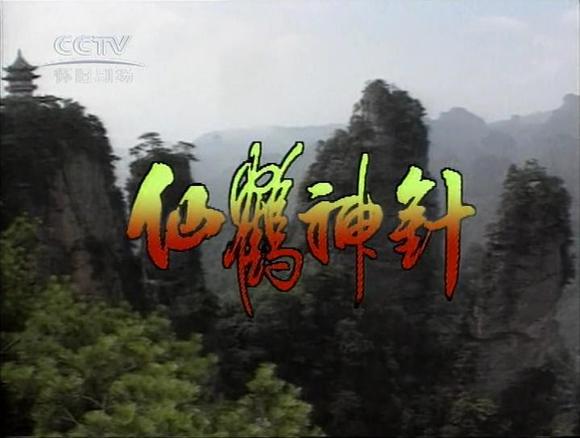
The background of the TV series is Zhangjiajie Scenic Spot
The theme song "Love of the Crane" is a classic Divine Comedy with deep emotional lyrics and endless tunes. In addition to the crane element that fits the title of the book, the lyricist Zheng Guojiang showed his characteristic skills that he likes to use natural scenery. Li Xiaotian's songs are sometimes graceful with deep friendship, and sometimes heroic in the battle between the rivers, lakes and temples. In addition, Ye Liyi, who is familiar to mainland film and television fans, is the lead singer, which really adds a lot to the TV series.
In terms of the cast. ATV is also the best out of the elite. Deng Haoguang, who plays the hero Ma Junwu (Yang Menghuan), has been a master since he joined ATV, and played the leading role in "Rebuilding Prosperity", "Faben Ruthless" and "Shanghai 1949". "Shanghai 1949" is also a TV series starring Deng Haoguang and Weng Hong together. Weng Hong originally also played the heroine Li Qingluan (Shen Xialin) in "The Crane Needle". Since the contract with ATV has not been renewed, she changed her role to the female No. 2 Su Feifeng (Li Yaohong). The corner of Li Qingluan was replaced by the newly popular Yang Yumei. Mai Lihong plays another important role, Bai Yunfei (Zhu Ruolan). Huang Limei, who plays Lan Xiaodie (Zhao Xiaodie), is relatively less well-known. Kaohsiung, Pan Zhiwen, Liu Dan, Yang Zelin, Huang Yuncai, Yin Tianzhao, Lin Zuhui, Mi Xue, Liu Yuting, Yuan Qiongdan and many other well-known actors play the main supporting roles.
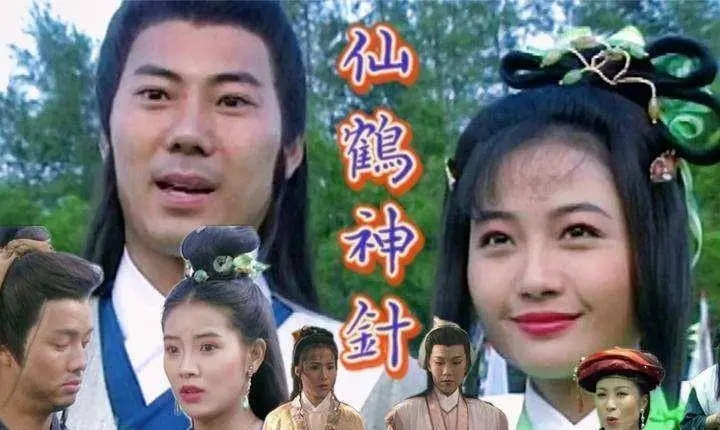
Main characters in the play
However, the screenwriter's excessive adaptation of the plot directly led to the collapse of the plot. Except for the characters and sects of the TV series that are consistent with the original, the background setting and storyline of the TV series are basically separated from the original. The screenwriter is not very familiar with the timeline of Ming Dynasty history. The original story took place in the Zhengde-Jiajing period. The screenwriter described the origin of the story as during the Hongzhi period, Jinyiwei Lan Haiping (Zhao Haiping, later the original name of "Flying Swallows and Frightening the Dragon", the same below), in order to avoid the persecution of the concubine Wan Guifei and the prime minister Yan Song, he and his wife took the princess with him In seclusion with "The Secret Book of Returning Yuan". It is well known that the concubine who killed the prince was Emperor Chenghua's Concubine Wan; Emperor Hongzhi was framed by Concubine Wan when he was young and only married one queen in his life; Yan Song was the favorite minister of Emperor Jiajing in the middle and late stages. In this way, the story time setting has been changed into a hodgepodge of four emperors throughout the Ming Dynasty, and it is full of errors.
The protagonist's halo is particularly serious, and since the beginning of Wugong's peaceful descent, he has successively won the favor of beauties such as Su Feifeng, Bai Yunfei, and Lan Xiaodie. Soon, he won the favor of Lan Haiping, the No. 1 master in the Central Plains and the owner of "The Secret Book of Returning Yuan". If it is a handsome guy like Yang Kang, or a young hero like Guo Jing, it is understandable that he is favored by all the beauties and martial arts Taishan. However, Ma Junwu is a young man with a plain appearance and a popular personality, both from the original work and from the TV series.
What's worse is that the TV series also added Ma Junwu's fancy settings. He likes to flirt with people everywhere, such as flattering Lan Xiaodie to be good-looking, and saying to Bai Yunfei, who is wearing men's clothes, "Brother Bai would be better if he were a woman." In general, if the story goes on like this, the ending is like "The Return of the Swift Swift", the sequel to "Flying Swallow", as if enjoying the blessings of everyone. But in the end, even if Su Feifeng ruined his face to save Ma Junwu, Lan Xiaodie lost his hair to save Ma Junwu, and Bai Yunfei returned to the palace to complete Ma Junwu; Ma Junwu still chose to be with Li Qingluan, his childhood sweetheart.
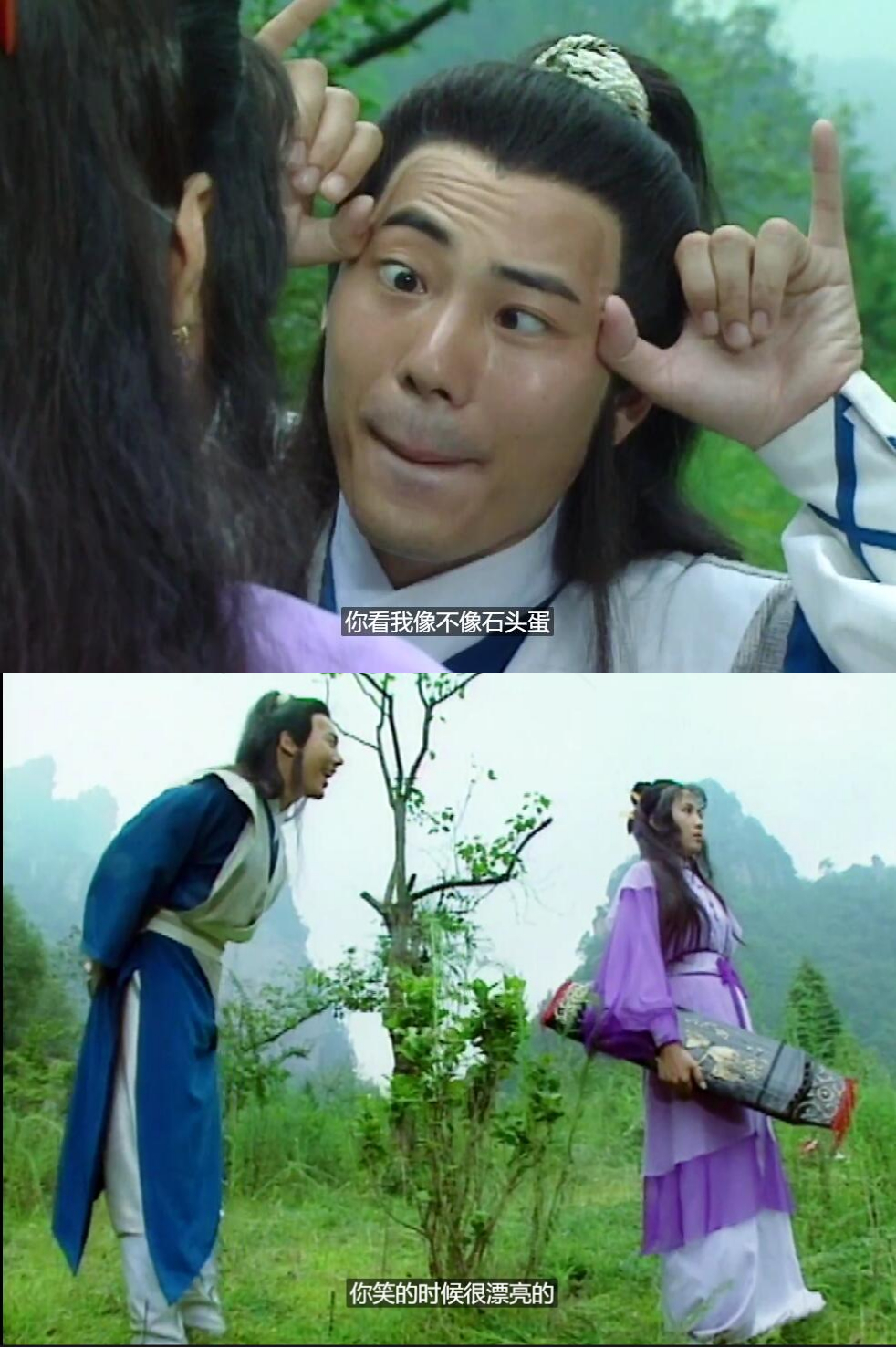
Ma Junwu flirts with Blue Fluttershy
In the TV series, Li Qingluan represents Ma Junwu's love; Su Feifeng, Bai Yunfei and Lan Xiaodie represent Ma Junwu's righteousness. If it is arranged like this, how can the "Love will always be linked to each other and will always be connected" in the theme song?
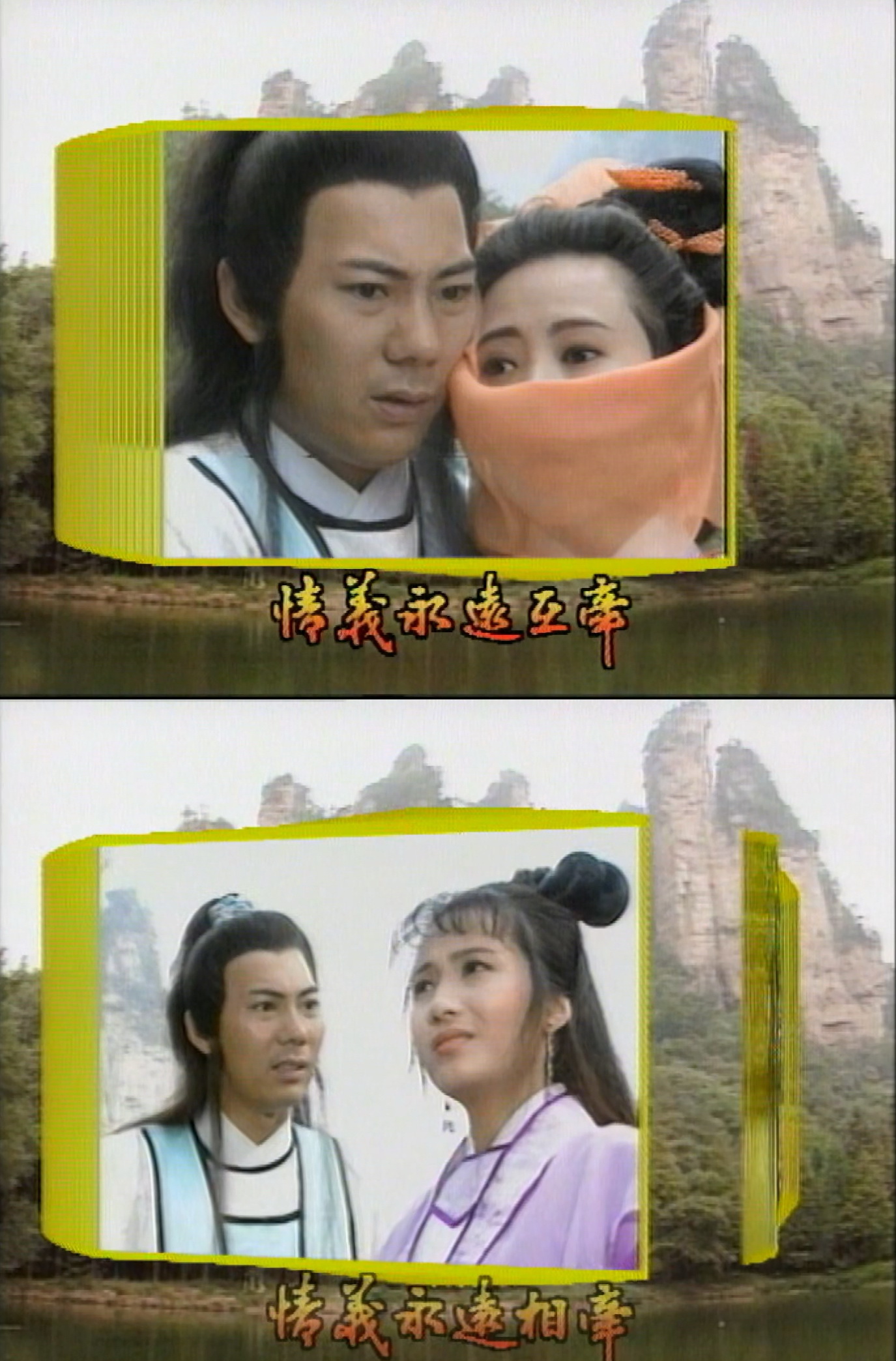
The picture in the lyrics did not come true after all
In addition to the problem with the emotional line, there is also a problem with the setting of Ma Junwu's way of life in the TV series. The mentor Xuanqing Daoist and the Kunlun faction who raised the protagonist represent Ma Junwu's filial piety and loyalty respectively. After Ma Junwu was expelled from his division like Linghu Chong, he just rejected Lan Haiping's invitation to get started, but later he recognized him as his adoptive father and studied "The Secret Book of Returning Yuan". Linghu Chong learned Ren Woxing's Star Absorbing Dafa because of fate, and learned the Yi Jin Sutra of Shaolin Temple is a white lie of Master Fang Zheng. He was deeply hurt by many infuriating qi in his body, but in order not to betray the Huashan faction, he would rather endure the suffering than turn to others. Compared with Linghu Chong, Ma Junwu is simply unscrupulous.

Ma Junwu recognizes his adoptive father
Let's talk about a few female characters around Ma Junwu. Among the many female characters, junior sister Li Qingluan seems to be the lowest among these women in terms of force value, emotional intelligence, and IQ. Li Qingluan in the original novel is innocent and lovable. The character of Li Qingluan in the TV series is as stupid as a white lotus, and sometimes he is arrogant and willful, and will only become a burden to others. The screenwriter did not explain why she has such a big lady character, without a parent or mother. Su Feifeng's personality is similar to Li Qingluan, she is a stubborn and willful eldest lady. The author still does not understand why the screenwriter arranged the two heroines to have the same character. Lan Xiaodie is the kind of village girl in the mountains who gives silently and doesn't talk much. As for Bai Yunfei, he is the most outrageous person in the adaptation.
The original novel maintains the consistent style of Wo Longsheng's novels, that is, women are strong and men are weak. In fact, in the book "The Crane Needle", Bai Yunfei is the first protagonist. Bai Yunfei's life experience and experience are accompanied by "The Secret Book of Returning Yuan" by Tianji Zhenren and Sanyin Shenni. As a princess, although she was brought to the people by the master, her bearing, knowledge, wisdom and even martial arts are more than Ma Junwu and many women. Just in terms of bearing, Bai Yunfei feels like a majestic presence in the world. However, the TV series changed Bai Yunfei into a supporting role in the supporting roles, the scenes were deleted, and the ability was weakened. The plot is really sorry for Mai Lihong's excellent performance. Li Qingluan was raped by Cao Xiong (Tao Yu), and in the original book, he was rescued by Bai Yunfei. The plot of Bai Yunfei saving others was put on Lan Xiaodie again. The crane Xuanyu, which only Bai Yunfei could control, became capable of being ridden by everyone.
The unreasonable adaptation of the story has caused the plot to not correspond to the title of "The Crane Needle". The "Xianhe" in the title is Bai Yunfei's mount Xuanyu; "Shenzhen" is the sword of Sanyin Shenni, which was acquired by Ma Junwu later. According to Sanyin Shenni, "The Secret Book of Returning Yuan" is a method of inner strength, and the divine needle of Dingtian is a magic weapon to exert inner strength. It can be seen that Bai Yunfei and Ma Junwu are the official match, no matter from the title of the book, or from the point of view of inner strength, mind, and magic weapon. At the same time, Bai Yunfei is also the first protagonist.
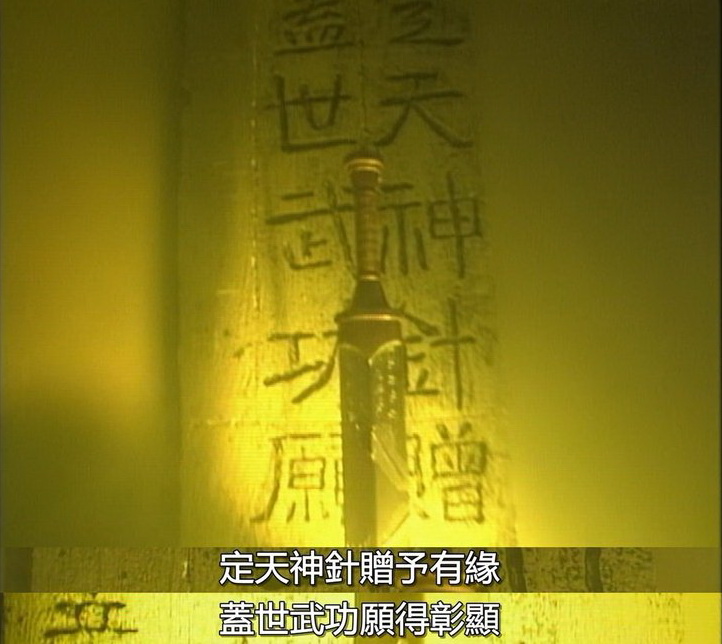
Can play the "Guiyuan Cheats" of the God of Dingtian Needle
The unreasonable adaptation of the story also led to the inability to echo the theme song. "The Crane couple is smiling in the blue sky and invites hands to connect", obviously referring to the matter of Bai Yunfei and Ma Junwu. At the end, Bai Yunfei returned to the palace, and the crane was ridden by Su Feifeng and Lan Xiaodie. Bai Yunfei's return to the palace is the most incredible adaptation. The screenwriter did not explain how the traitorous concubine's mother was defeated, and why Bai Yunfei chose to return to the palace.
Wolongsheng's Jianghu pattern is far less than Jin Yong's. The Eagle Shooting Trilogy is all related to the general trend of the world and the high court; even if the original work of "The Crane and the Needle" involves the royal family, the plot is only about winning the treasures and competing in the arena. In 1985, the adaptation of "Flying Swallows and Frightening the Dragon" in Taiwan successfully improved the pattern of the original work. The story retains the original assumption that Zhu Ruolan is the daughter of Emperor Zhengde, and the plot is that she removed Liu Jin, the eunuch who endangered the court, and Tao Yu, the scum who colluded with her father. It also involves palace fights, but the plot and rationality of "The Crane Needle" is more than a little less than that of "Flying Swallows and Frightening the Dragon".
From a commercial point of view, "The Crane Needle" is undoubtedly a success. The CCTV Nostalgia Theater is still showing the film frequently. From the perspective of martial arts fans and drama fans, it is undoubtedly a pity. It's a pity for the excellent performances of many actors, a pity for the beautiful theme song, and a pity for the great investment of ATV.
